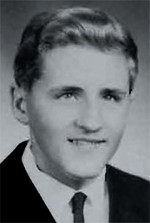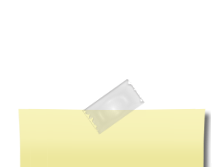Clipper Chatter
| Forum: Member Stories | |||||
|
|||||
|
Christopher Newman
 Posts: 28 View Profile |
The Thanksgiving Story Posted Saturday, November 26, 2011 12:16 AM In 1620, 391 Novembers ago, a small ship was being rocked and tossed in the cold North Atlantic. And on board were its captain and Ship's Master, Christopher Jones, Pilgrim leaders, William Bradford, William Brewster, Myles Standish, 101 English men, women, children... and the Spirit of a Delivering God. Having left England, starting in 1608, because of religious persecution, the "Scrooby Separatists" - or Puritans became pilgrims, traveling first to Holland where they settled and lived for 10 years. Life in Holland was better for the Puritans although there were language problems and in their hearts they remained English, continuing to desire their own land. Just as they did not want to be under the domination of the King's religion, they also did not want to be dominated by the Dutch culture. And so, in late summer of 1620, with winter approaching, they embarked for the "promised land" - America. The voyage was treacheous from the beginning. The second of the two ships, the Speedwell, was damaged and had to return to Holland - shortly after its departure. Most of those on board remained in Holland until the following year. The Mayflower, after returning to Holland with the Speedwell, took on more passengers, and began, again, its voyage to America. For several perilous and cruel months, the Mayflower was upon the sea and at its mercy. The main beam of the ship was cracked, there was leakage in the upper decks and calls from the ship's crew to return to Holland. Christopher Jones, the Ship's Master, courageously urged the passengers and crew to "continue on." The little ship was crowded, cold, and uncomfortable. Many were sick, and some were dying -- when on December 21, 1620, the Mayflower cast anchor off Cape Cod. (The original destination was Virginia, near the already established Jamestown Colony, founded in 1607; the site was originally names James Fort, in 1619 it was renamed Jamestowne. The small ship, the Mayflower, was blown off course and Massachusetts would become the home of the new, northern colony). It was in March, 1622, the Jamestowne Massacre occurred when the Powhatan Indians attacked the settlement killing 347 of the English settlers. "Amidst the storm they sang, And the stars heard - and the sea, And the sounding aisles of the dim woods rang - With the anthem of the free." Bryant With the great voyage behind them, the Mayflower Company now began to focus on the realities of a bleak New England winter - without shelter. The snow fell fast as the men cut down trees to build a common house, for the sick and dying, and two rows of houses for their families. May Lowe wrote: "The winter had been a hard and bitter one. At one time all but six or seven of the Pilgrims were sick; and when spring came, more than half their number had died." January, February and March were pernicious months for the Pilgrims. The damp sea air, ice and snow, constant sickness, lack of provisions, and fear of the Indians, bears and wolves were just some of the tribulations our forefathers had to face during their first winter in America. By April, only fifty-five of the one-hundred and one settlers remained alive. In the spring of 1621, the surviving members of the colony cleared the land and planted the first seed. They made friends with the Indians - who taught them how to plant and fertilize corn. They found an abundance of wild fruits and berries. And as autumn came they realized that the forests were swarming with game. The Mayflower Compact provided for the basics of self-government based on the tenets of the general good, communal sharing and sacrifice. The latter caused some division because not everyone was industrious, creative and productive. At the end of the day everyone received equal shares regardless. This caused conflicts and general productivity decreased, (America's first experiment with Socialism was an abject failure). "Governor" William Bradford, who remained governor of the colony until his death in 1657, wisely reversed the social-communal sharing policy into a policy more akin to "individual responsibility and free-enterprise." Their little plats and houses became "their own" and soon productivity increased and the twenty acres of Indian corn and six acres of barley and peas yielded a plenteous harvest. The first trading posts were established and the little colony began to flourish. In a letter by Edward Winslow, one of the company, dated December 11, 1621, he writes to a friend in England: "Our corn did prove well, and, God be praised, we have a good increase in Indian corn. And altho it is not always so plentiful as it was at this time with us, yet by the goodness of God, we are so far from want, that we wish you partakers of our plenty." Blessed by an abundance of food, good health, and good weather, the Mayflower Company resolved to prepare a great feast of thanksgiving --- to the Lord, Who brought them to this rich new land. For three days they celebrated. The old Indian King, Massasoit, joined in the celebration with ninety of his braves. The Indians brought five deer, which they bestowed on their Pilgrim hosts. There were wild turkeys, geese, fish, clams and oysters. And there were barley loaves, corn breads, fruits, nuts, cakes and pies of many kinds. Thus, the first Thanksgiving festival was celebrated in America. (According to the writings of Gov. Bradford, the orginal Thanksgiving Day Celebration may have occurred in 1622 or possibly later when the Colony was more established and the Pilgrims more prosperous). Alice Williams Brotherton, in excerpts from her poem, The First Thanksgiving, says so appropriately: "From Plymouth - to the Golden Gate today their children tread, The mercies of that bounteous Hand upon the land are shed; The "flocks are on a thousand hills," the prairies wave with grain, The cities spring like mushrooms now where once was desert-plain, Heap high the board with plenteous cheer and gather to the feast, And toast that sturdy Pilgrim band whose courage never ceased, Give praise to that All-Gracious One by whom their steps were led, And thanks unto the harvest's Lord who sends our "daily bread." (George Washington, as the nation's first President, declared November 26, 1789 as a National Day of "Thanksgiving and Prayer." He voiced his personal conviction that "it is the duty of all nations to acknowledge the providence of Almighty God." See the entire Proclamation, made from New York on October 3, 1789.) Happy Thanksgiving, 2011 Christopher Newman
|
||||
|
|||||

